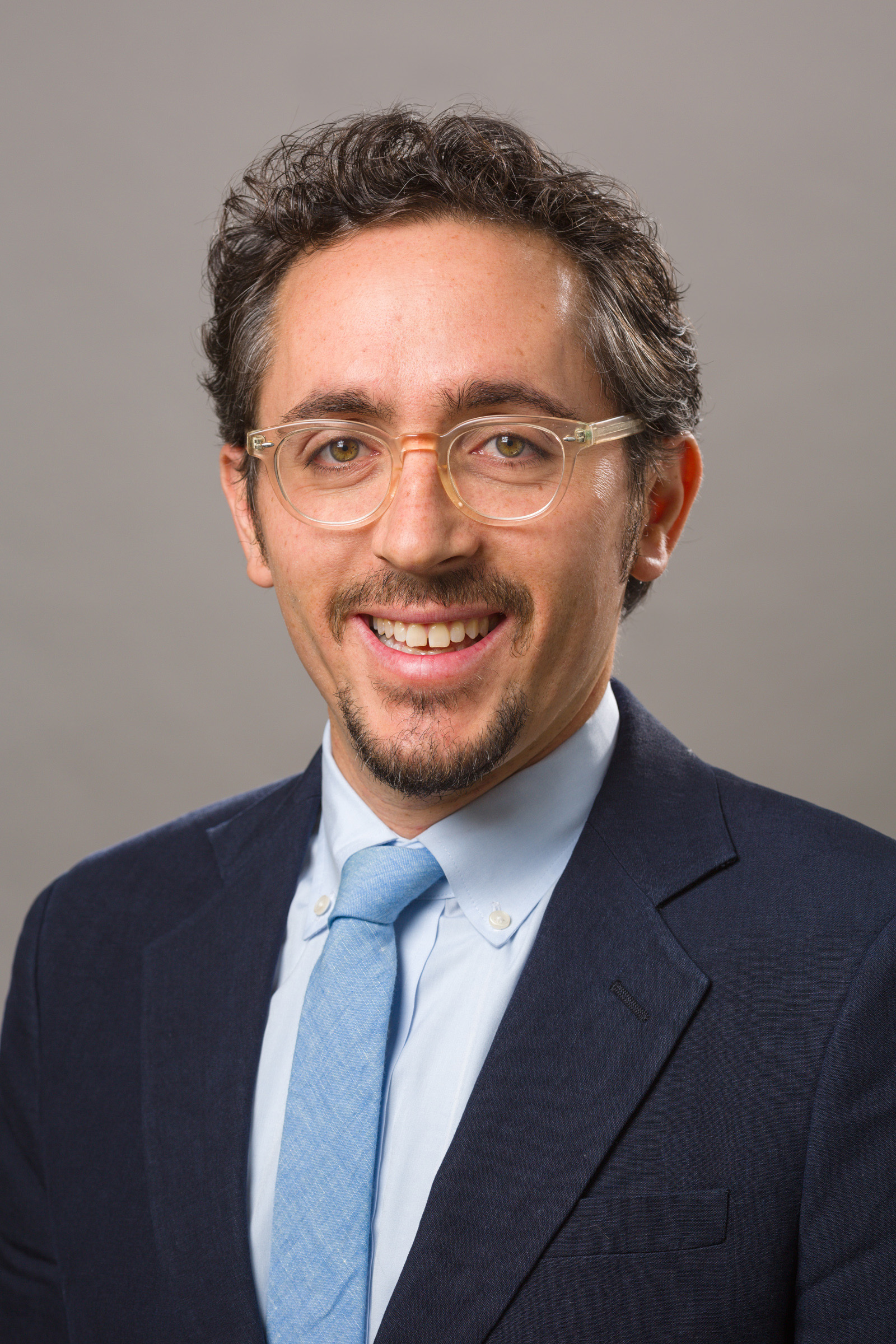As part of our “Meet Yale Internal Medicine” series, we are featuring Benjamin Goldman-Israelow, MD, PhD, assistant professor in medicine and former ABIM Physician-Scientist Research Pathway Resident.
Since joining Yale School of Medicine in 2019, Goldman-Israelow, a physician-scientist interested in virology and immunology, has established himself in Yale’s COVID-19 studies due to his ability to translate between research and patient care.
“I’m a very curious person, so science was a natural fit for me,” Goldman-Israelow said. “However, seeing patients is what drives me to try to understand viruses, how they cause disease, and how we can create cures or vaccines to treat them.”
Path to Yale
Goldman-Israelow completed his MD/PhD at the Icahn School of Medicine at Mount Sinai, where his research focused on understanding how different aspects of the immune system regulate the hepatitis C virus. After earning his doctorate in 2016, he came to Yale School of Medicine as part of Yale’s ABIM Physician-Scientist Research Pathway, a two-year short track into fellowship training for residents who are strongly committed to research careers.

While interviewing for the program, he met Akiko Iwasaki, PhD, Sterling Professor of Immunobiology and professor of dermatology and of molecular, cellular, and developmental biology and of epidemiology (microbial diseases), and investigator, Howard Hughes Medical Institute. Iwasaki leads multiple studies looking at immune defense mechanisms against viruses that enter through mucosal surfaces. Goldman-Israelow’s desire to work with Iwasaki cemented his decision to pursue post-doctoral research at Yale.
Pursuing SARS-CoV-2 Research
Goldman-Israelow joined Iwasaki’s lab in August 2019, working on models of viral infection-based inflammatory pathologies. Five months into his new position, the first cases of COVID-19 were reported in Wuhan, China.
“We quickly saw that this virus was not going to be a localized or controlled phenomenon,” said Goldman-Israelow. “We saw cases popping up throughout the world, and then the real wake-up call was when Italy was besieged by the virus in February 2020. But by then, we already knew this was something we needed to be working on.”
Goldman-Israelow and his team quickly developed a novel preclinical model to pursue SARS-CoV-2 research, which led to the first of several of his first-author publications in Iwasaki’s lab. His model showed that the type 1 interferon system, the body’s innate immune system that is encoded in the human genome, is inadequate for limiting SARS-CoV-2 replication.
“COVID came at a very interesting point in science, where we have a ton of tools to rapidly understand what’s going on both in preclinical models, and in humans,'' said Goldman-Israelow. “Traditionally, it’s been more difficult to do human research because we didn’t have enough patients. During the COVID pandemic we had, unfortunately, millions of people who were affected by the same disease at the same time. I think the pandemic arose at a time when we could really dig into this and study both virology and human immunology.”
Developing a Novel Vaccine Strategy
Goldman-Israelow’s most recent project has focused on developing a novel vaccine strategy, “Prime and Spike.” This intranasal vaccine is designed to prevent transmission of the COVID-19 virus by recruiting antibodies and memory T cells into the respiratory tract. “The idea is that we can try to prevent replication before it has a chance to take hold, and higher levels of antibodies at the initial site of infection may have broader efficacy against newly emerging variants,” he explained.
The originality and significance of Goldman-Israelow’s research, which he pursued despite demanding clinical responsibilities during the pandemic, led to his promotion from trainee to instructor in medicine in June 2021. He is also a recipient of the Department of Internal Medicine 2022 Iva Dostanic Physician-Trainee Award, an annual award that recognizes trainees with exceptional passion for science and clinical care. In August 2022, he was promoted to assistant professor in the section of infectious diseases. He plans to continue his research on COVID-19 and other emerging respiratory pathogens with his own laboratory.
In his free time, Goldman-Israelow enjoys being with his wife and their two young children, cooking, gardening, skiing, and biking. “I found that that’s one great aspect of living in New Haven - you can get on your bike and be in farmland within 10 miles or so,” he said.
COVID came at a very interesting point in science. Traditionally, it’s been difficult to do human research because we didn’t have enough patients. During the COVID pandemic we had, unfortunately, millions of people who were affected by the same disease at the same time.
Benjamin Goldman-Israelow, MD, PhD
The Infectious Diseases Section of the Department of Internal Medicine engages in a broad range of patient care, research, and educational activities. To learn more about their work, visit Infectious Diseases.